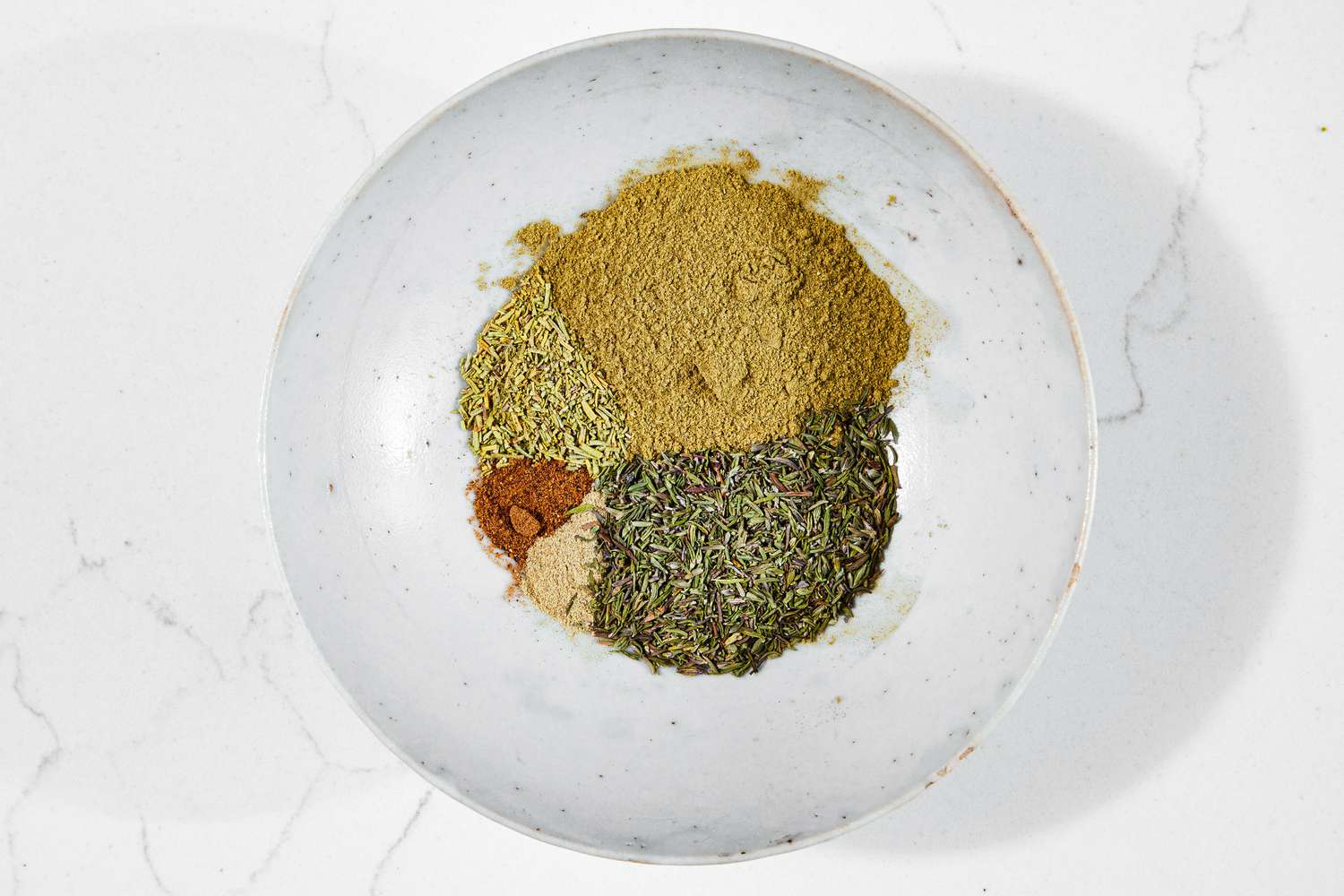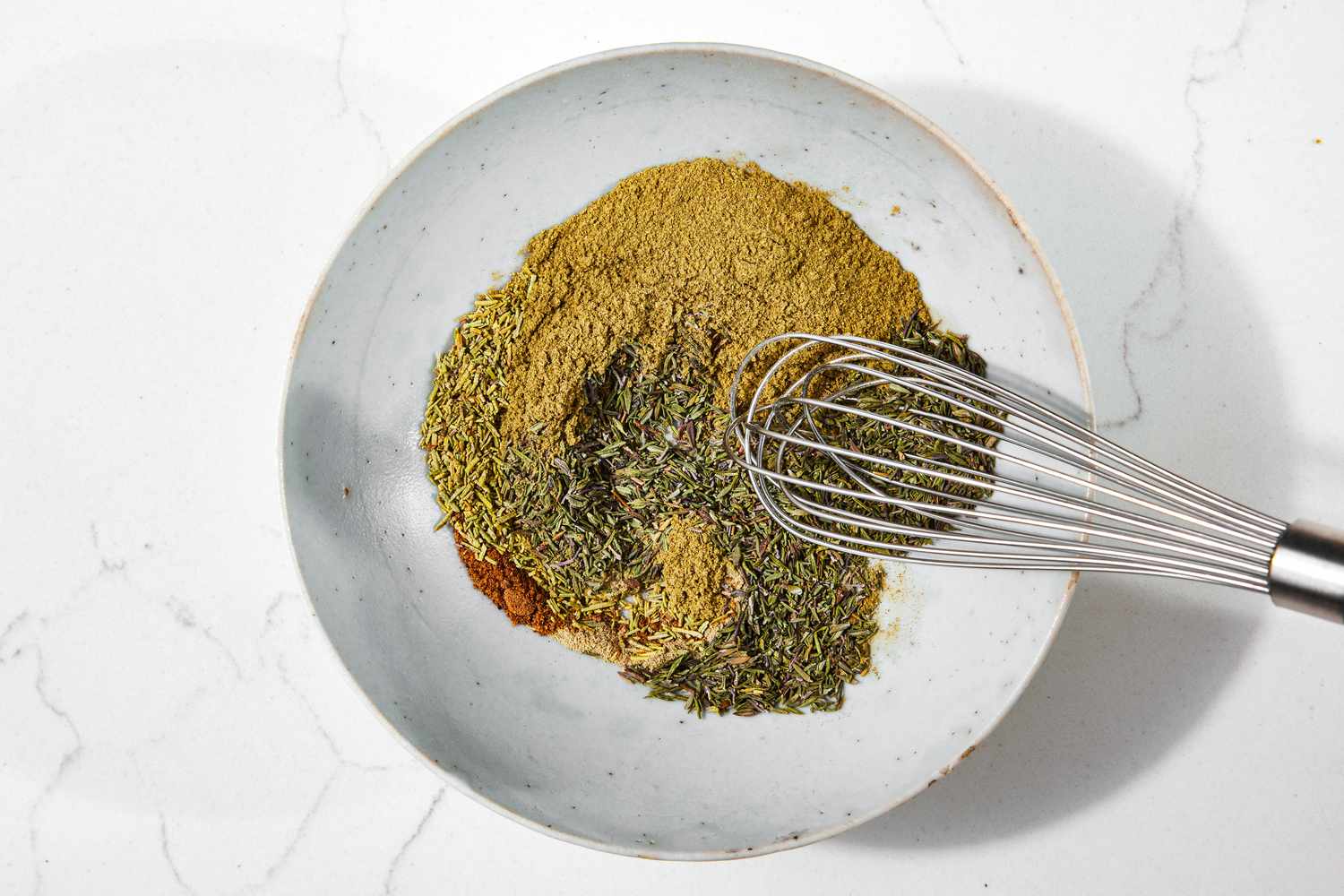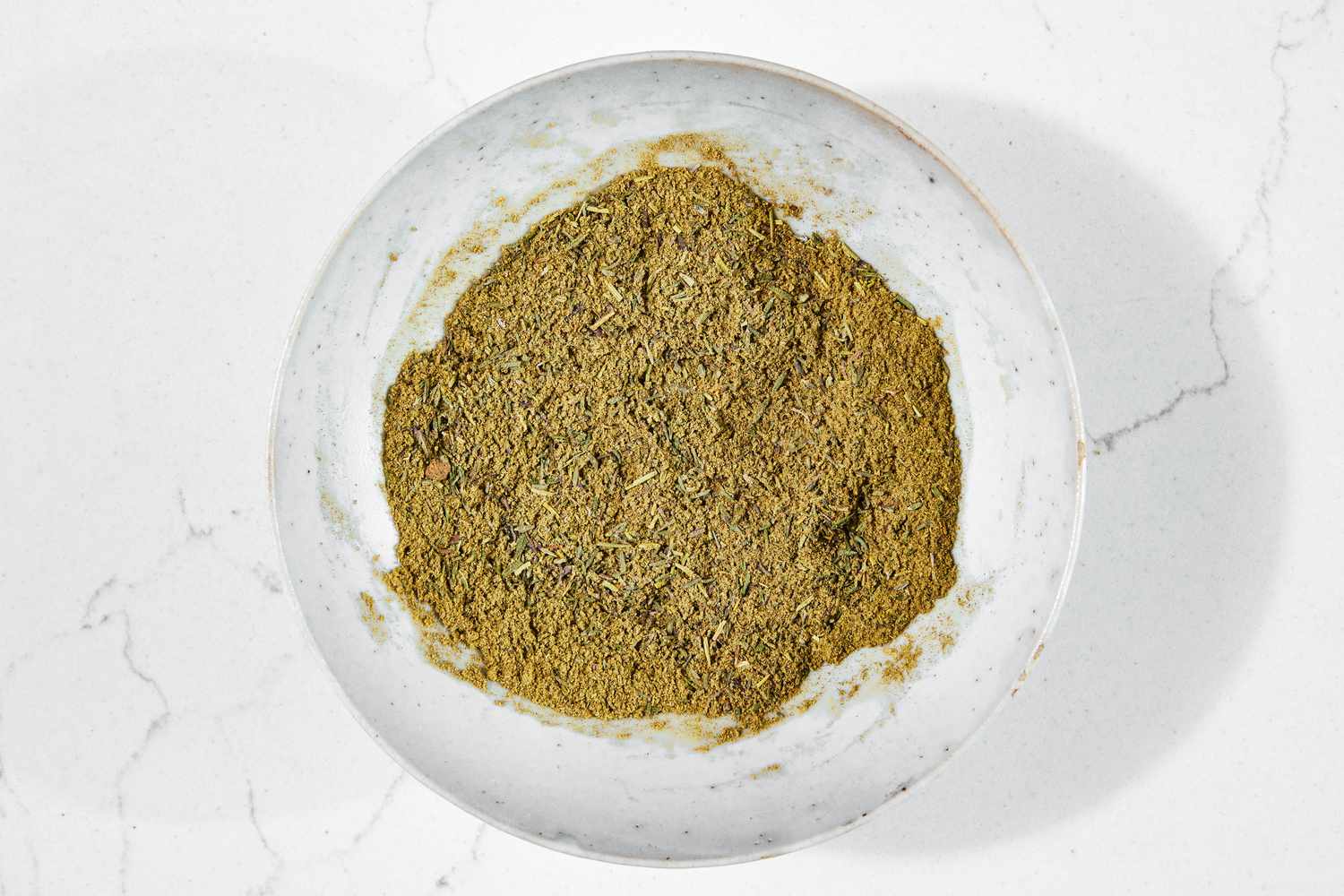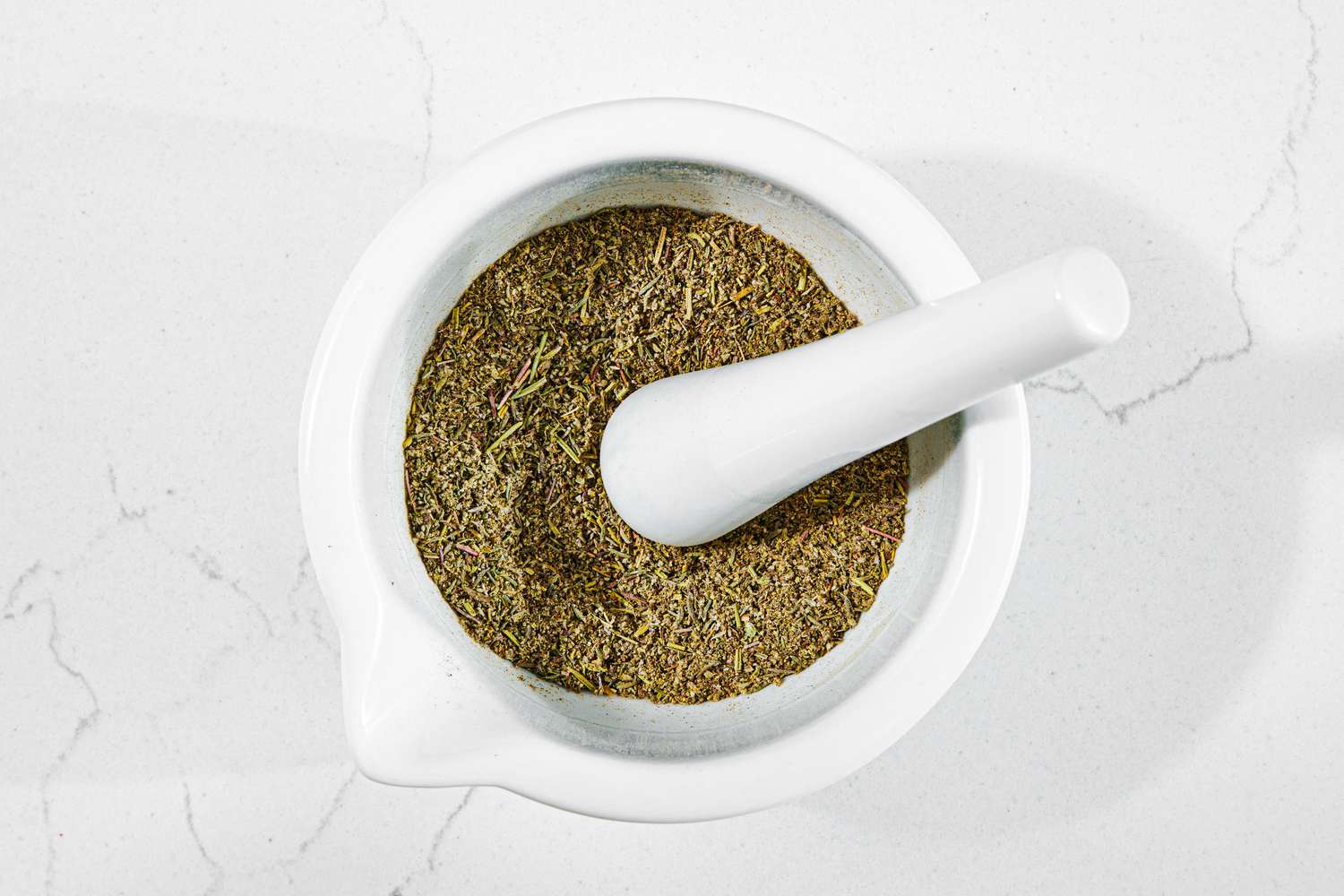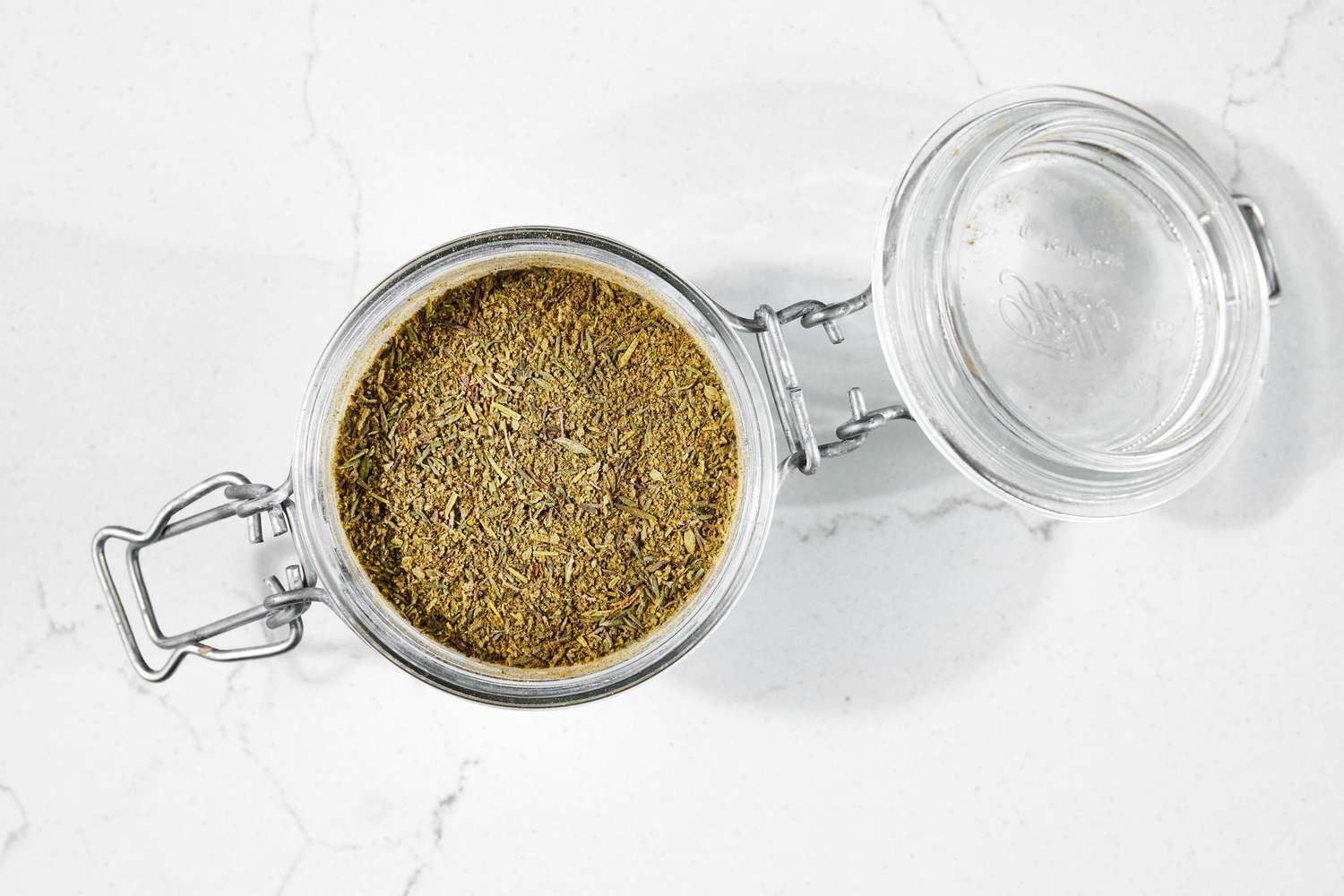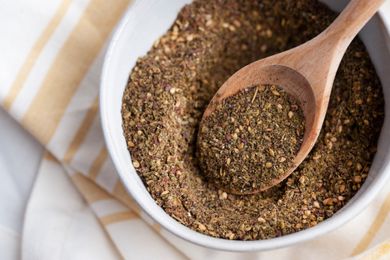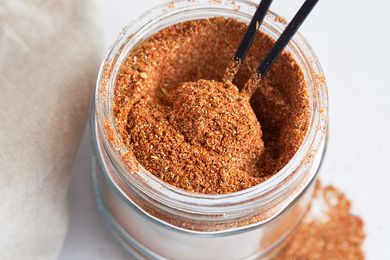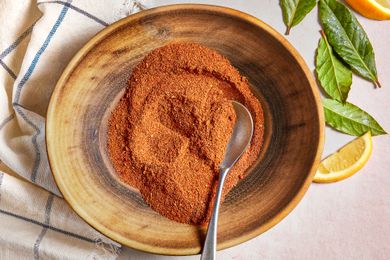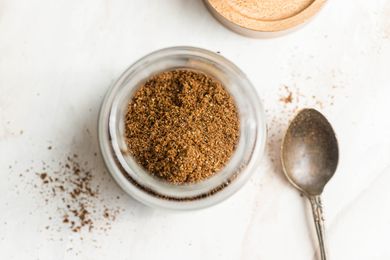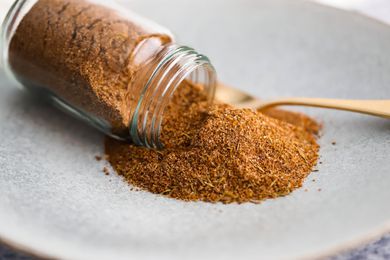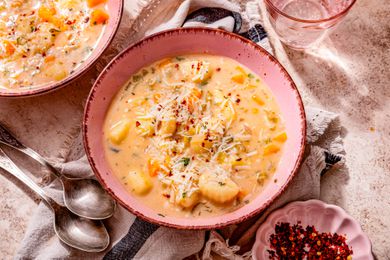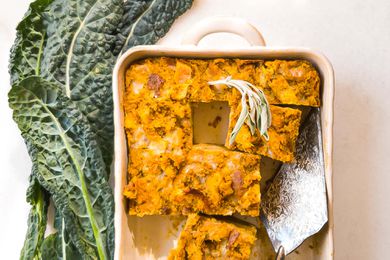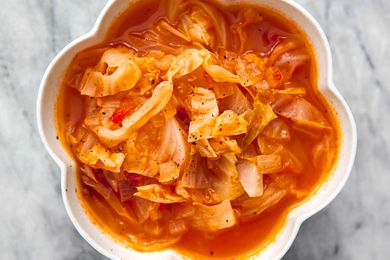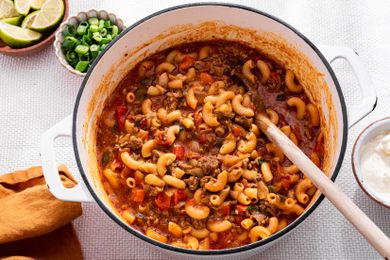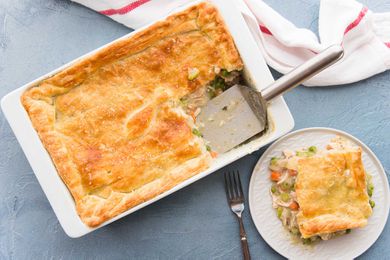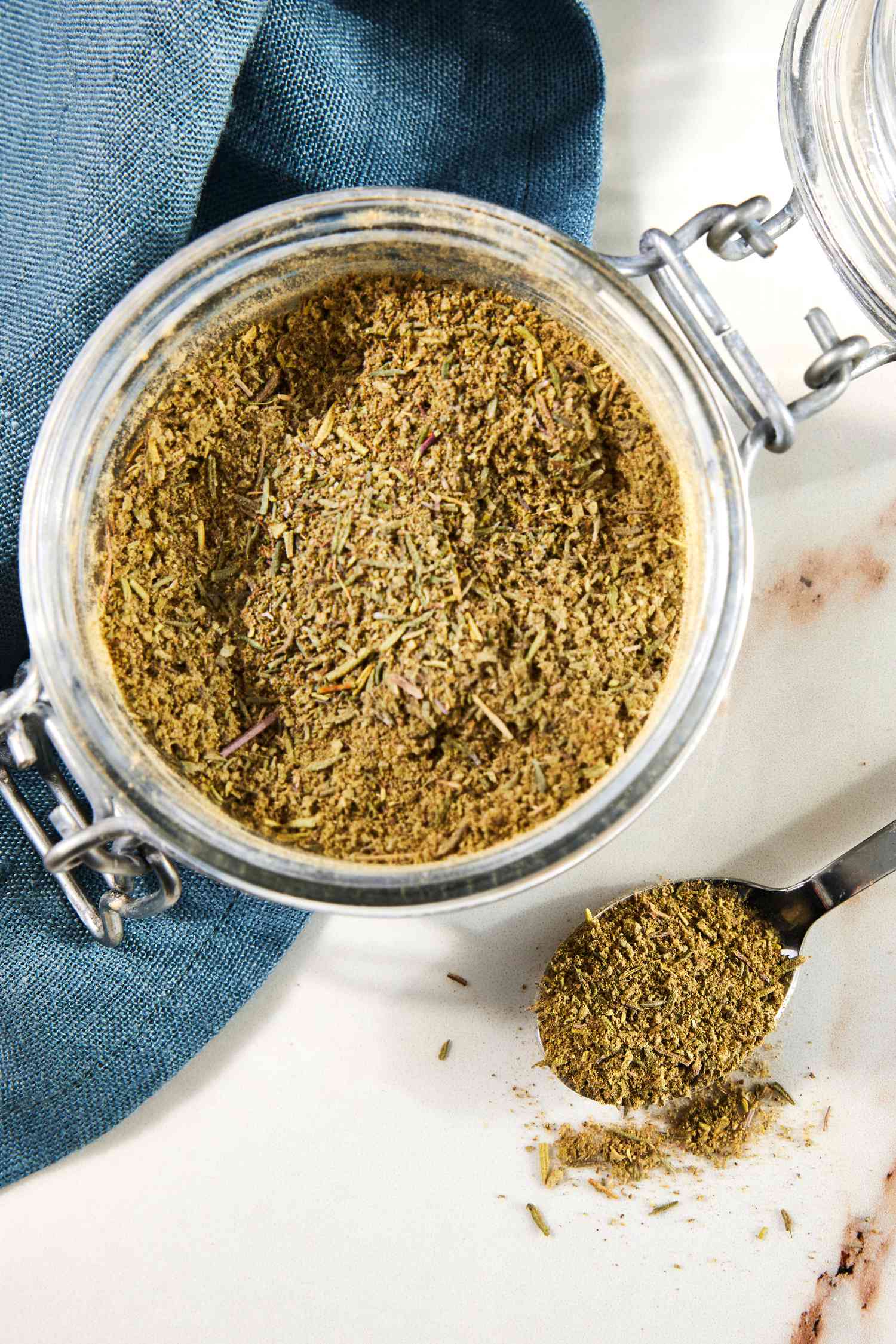
Simply Recipes / Jen Causey
At once enlivening and comforting, poultry seasoning adds an herbal dimension to more than just poultry recipes. Homestyle casseroles, gravies, beany stews, and brothy soups can benefit from a generous teaspoon or two. If you have the short list of herbs and spices handy, you can make your own in minutes—and quite likely be inspired to reach for it more often in the process.
What Is Poultry Seasoning?
A mixture of white pepper, nutmeg, and dried herbs—usually thyme, sage, and rosemary with some marjoram—poultry seasoning is at once subdued and intense. Its aroma conjures up visions of roast turkey, even when there’s no turkey in sight.
Ours is a basic version, but other blends can contain small amounts of celery seed, cayenne pepper, ground ginger, or even dried lemon peel. Bell’s Seasoning, which originated in Massachusetts in 1867, serves as a touchstone for many who grew up with parents or grandparents using it every holiday.
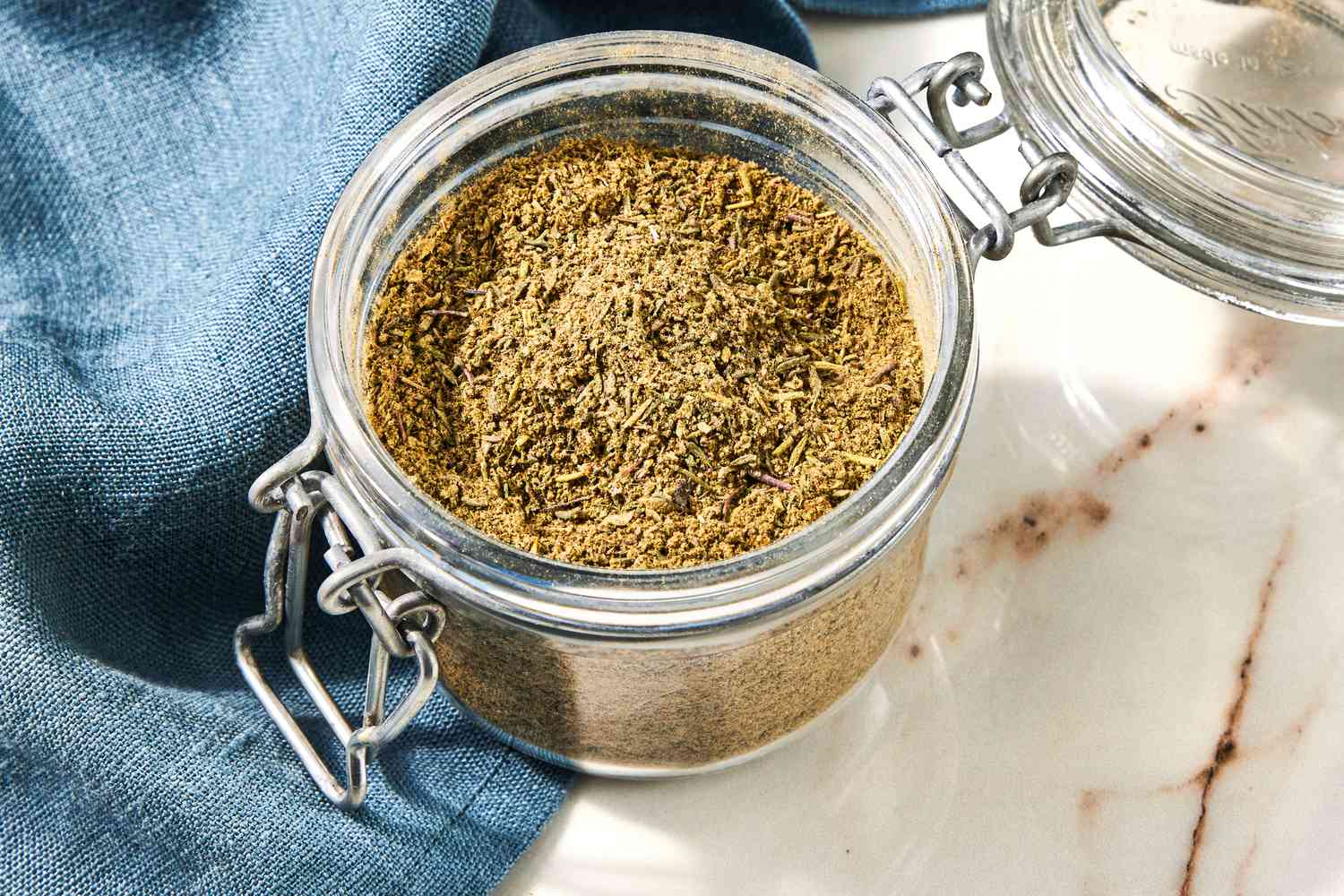
Simply Recipes / Jen Causey
Grind For a Finer Powder
In replicating a poultry seasoning formula for home cooks, Nicole Hopper in our test kitchen noticed that mixing your own produces a slightly different result from what you’ll get at the store. “Storebought poultry seasoning is all finely ground–there are no whole pieces of herbs. Since finding ground thyme, ground marjoram, and ground rosemary is much harder than finding the regular version, I decided to stick with the more common versions of these herbs for the sake of simplicity.”
One place she did deviate is rosemary. “It's key to use crushed rosemary–otherwise regular dried rosemary leaves are very out of proportion, size-wise.” However, if you only have full, needle-like dried rosemary leaves, you can simply chop them up a bit on a cutting board and proceed with the recipe.
If you’d like something more akin to the fine powder texture of storebought poultry seasoning, reach for your spice grinder or mortar and pestle. And if you don’t have either tool, don’t let it deter you. “Honestly, I kinda like that you can see some of the herbs and they’re somewhat identifiable,” Nicole says of the more rustic version.
What’s With the White Pepper?
White pepper is not simply an alternate color of the much more familiar black pepper. It’s made from the same plant, but white peppercorns are made using a different process that strips them of their fruitier black outer skin, producing a musky character that’s entirely all its own. Using white pepper will give you more of that familiar poultry seasoning flavor. You can still use black pepper and enjoy a wonderful seasoning.
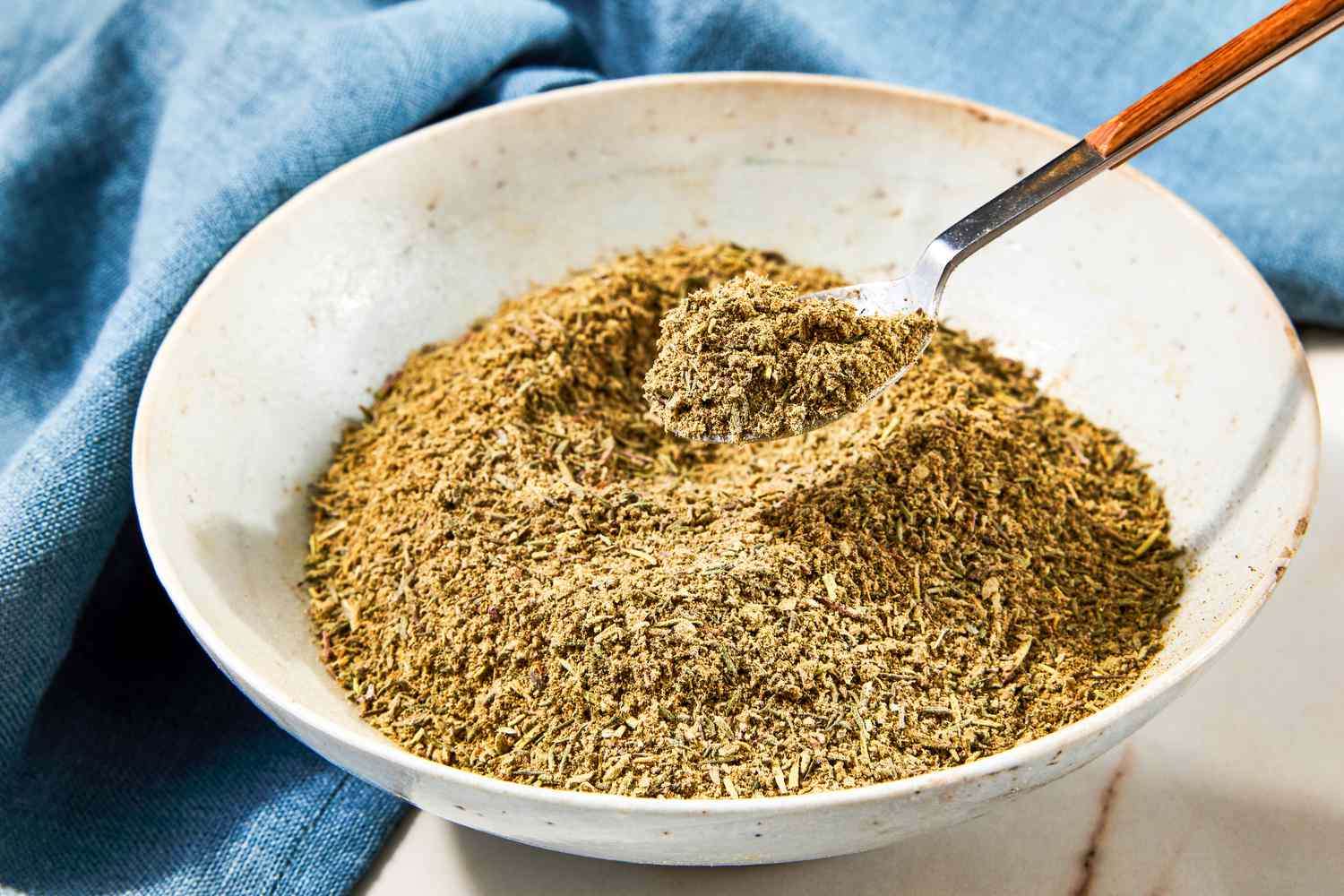
Simply Recipes / Jen Causey
How to Use Poultry Seasoning
As Nicole sums it up, poultry seasoning “smells like Thanksgiving!” Imagine the scent of dried herbs bloomed in butter or simmering in stock wafting through the house and you have an idea of the best places to use this.
“Mix into softened butter and slather over a whole roast chicken,” Nicole suggests. “But it’s not just for poultry: it’s also delicious to season roast veggies or to bring some herbaceousness to soups, sauces, casseroles, or pot pies. Or mix with butter and garlic to make a garlic-herb compound butter for garlic bread or dinner rolls.”
Make These Recipes With Your Poultry Seasoning
Poultry Seasoning
Look for crushed dried rosemary in the spice aisle. It’s broken into smaller pieces than regular dried rosemary. The smaller pieces incorporate better into the seasoning. If you only have full, needle-like dried rosemary leaves, you can simply chop them up a bit on a cutting board and proceed with the recipe.
Ingredients
-
1 tablespoon rubbed sage
-
2 teaspoons dried thyme
-
1 teaspoon dried marjoram
-
1/2 teaspoon dried crushed rosemary
-
1/8 teaspoon ground white pepper (or substitute black pepper)
-
1/8 teaspoon ground nutmeg
Method
-
Combine the ingredients:
Whisk together all of the ingredients in a small bowl until evenly combined.
![In a Bowl, Piles of Spices for Poultry Seasoning]()
Simply Recipes / Jen Causey
![Spices Whisked Together in the Bowl for Poultry Seasoning Recipe]()
Simply Recipes / Jen Causey
![Bowl of Poultry Seasoning]()
Simply Recipes / Jen Causey
-
Grind until fine:
If desired, process the mixture in a spice grinder (or grind with a mortar and pestle) until a fine powder forms, about 30 seconds.
![Poultry Seasoning Grinded in a Mortar and Pestle]()
Simply Recipes / Jen Causey
-
Store:
Transfer to an airtight jar or container. Store in a cool, dry place for up to 6 months.
Did you love the recipe? Leave us stars below!
![Poultry Seasoning in a Jar]()
Simply Recipes / Jen Causey
| Nutrition Facts (per serving) | |
|---|---|
| 1 | Calories |
| 0g | Fat |
| 0g | Carbs |
| 0g | Protein |
| Nutrition Facts | |
|---|---|
| Servings: 30 | |
| Amount per serving | |
| Calories | 1 |
| % Daily Value* | |
| Total Fat 0g | 0% |
| Saturated Fat 0g | 0% |
| Cholesterol 0mg | 0% |
| Sodium 0mg | 0% |
| Total Carbohydrate 0g | 0% |
| Dietary Fiber 0g | 0% |
| Total Sugars 0g | |
| Protein 0g | |
| Vitamin C 0mg | 0% |
| Calcium 3mg | 0% |
| Iron 0mg | 1% |
| Potassium 2mg | 0% |
| *The % Daily Value (DV) tells you how much a nutrient in a food serving contributes to a daily diet. 2,000 calories a day is used for general nutrition advice. | |
